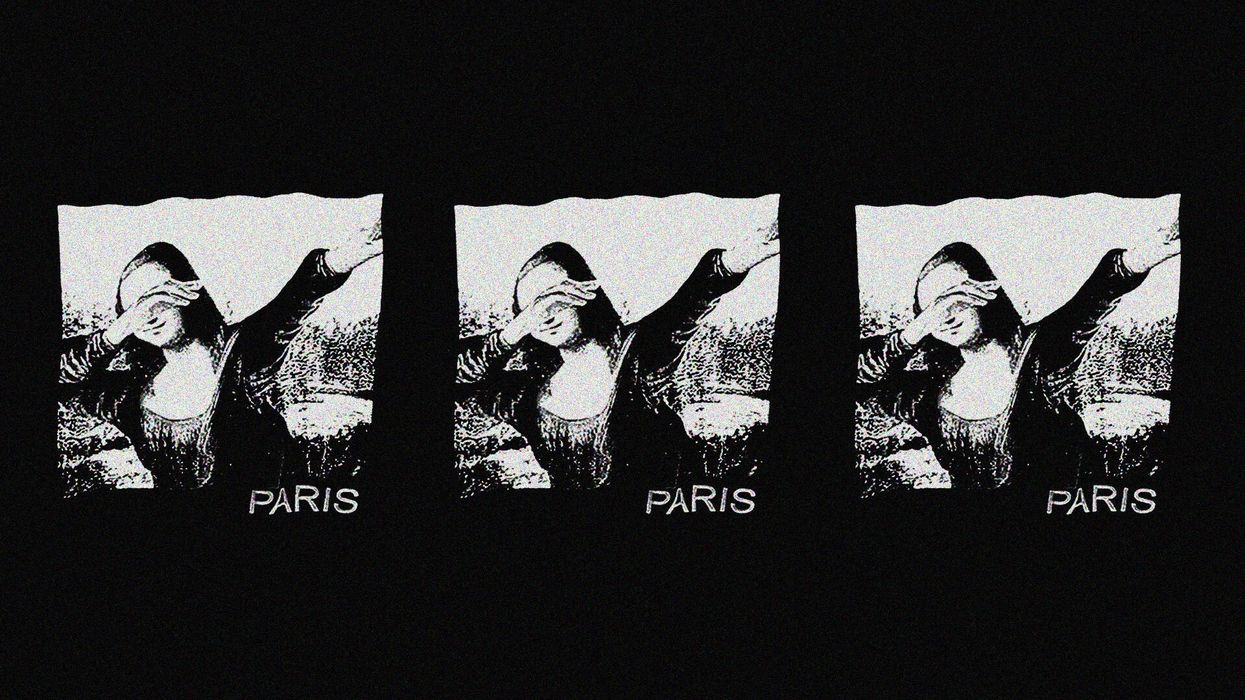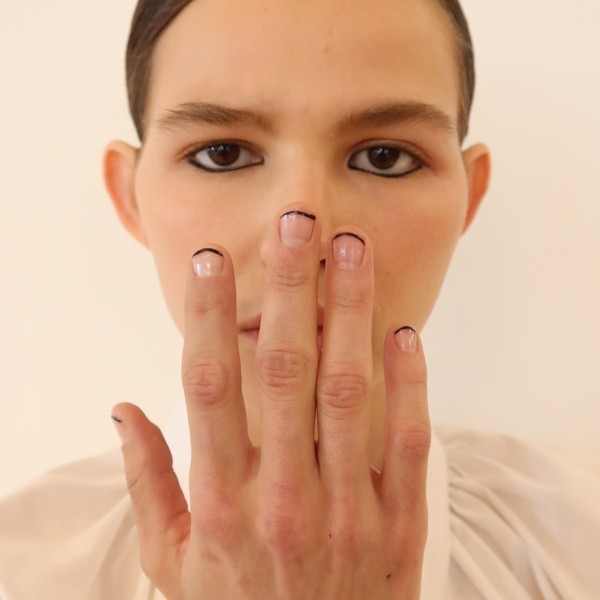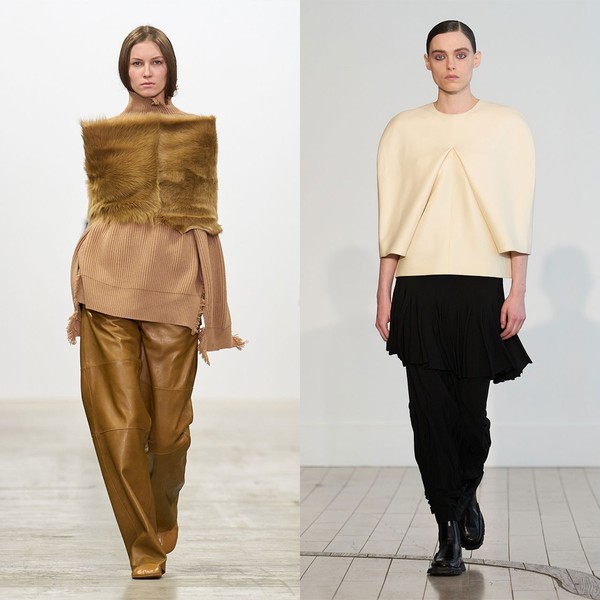In Defense of Paris
Paris has never pretended to be anything other than what it is. So, why is the recent wave of tourists acting like they’ve been misled?

This summer, the internet seems to have found one thing to unanimously agree upon: Paris sucks. Every TikToker and their mother has been gleefully crowing about just how hateful they find Paris. My socials are rife with video after video of millennials and zoomers filming themselves sitting on a dry patch of grass under the Eiffel Tower, absolutely eviscerating the City of Light.
Personally, I haven’t been able to understand the slander. I visited Paris for a few days when I was 17 and loved it so much that I did a semester abroad there in college where I grew to love it even more. As fate would have it, I got married in France this summer and returned to Paris for the first time in over a decade with my husband, who had never been before. I approached my trip with an open mind and the goal of clarifying one nagging question: Does any of the Paris slander have a point?
It can’t be ignored that Paris looms exceptionally large in the global imagination. Media that is very specifically about Paris—Emily in Paris, Amélie, Paris, Je T’Aime—often becomes a global phenomenon. While many big cities get mythologized over time, Paris has managed to become specifically known as the most romantic city in the world, aesthetically flawless and full of only the most effortlessly glamorous people. Everyone loves Lisbon, but since when have girls’ dorm rooms been covered in Portuguese word-art collages and IKEA art of the Tagus River Bridge? London has a fashion week too, but is it more known for glamorous locales and beautiful citizens, or strong currency and weird pies? Paris has reigned supreme as an epicenter of trend and taste for centuries while simultaneously cornering the market on romantic timelessness. In other words, the mythos of Paris has seeped into the global imagination to a degree that poor Paris is now unwittingly writing checks to tourists that any city’s ass would have trouble cashing.
However, is the reality of Paris really that far removed from the myth that it merits all the hate? My conclusion: absolutely not. Y’all are insane.
As an unbiased newbie to Paris, my husband’s verdict was, “Paris delivers. It’s exactly what I expected and more. I have no idea what people are talking about.” Same, husband, same (and trust me, he does NOT just agree with me because I’m his wife, I promise). The art is unmatched, the architecture delightful, the patisserie delicious, the history fascinating, the vibe exciting and cozy all at once—what more could you ask for in a city? Plus, there’s something amazing about seeing something so iconic exist in solid form before your eyes. My husband and our friends all agreed that Paris was, for lack of a better word, extremely “Paris-y,” and absolutely delivered on expectations. What is it, then, that people feel like they’re being promised and not getting? Why has Paris suddenly been labeled as a skip or, worse, downright mid?
Disappointment with Paris isn’t a new phenomenon. Paris has the dubious honor of being the only city to inspire disappointment so severe that it can reach the level of a psychiatric illness: the infamous “Paris Syndrome.” The syndrome was first identified by a Japanese psychiatrist in the 1980s and is characterized by extreme disappointment to the point of symptoms like vomiting, dizziness, anxiety, paranoia, and acute hallucinations (damn, Paris!). One expert eloquently states his theory for the causation of this syndrome as tourists’ realization that there is “no Van Gogh, nor top models on every corner.” Clearly no one could actually reasonably expect that in the first place, so how does this acute disappointment even occur?
I’ve actually seen firsthand what was likely a mass case of Paris Syndrome—yes, complete with hallucinations. When studying abroad in 2011, a group of girls in my program were extremely upset about being housed in the 13th Arrondissement, a very pleasant but not particularly glamorous neighborhood that was far from any tourist attractions. I was housed in the very similar 14th and loved seeing how real Parisians lived (and could get everywhere else extremely easily on the Metro). But unlike me, these biddies were not charmed. These girls were convinced that their neighborhood was “dangerous” despite it being one of the safest in the city. They became so paranoid that one night they called the program administration claiming that someone was trying to “saw into their apartment” (yes, you read that correctly—“saw” as in an actual hand saw like Wile E. Coyote). While neither the program nor the police found any evidence of this alleged Looney Tunes-esque break-in, these girls were so shaken that they convinced one of their moms to get them an apartment near Notre Dame (a.k.a. the Times Square of Paris), where there actually is tourist-targeted crime.
Let’s break this down. We can’t ignore that these girls were all from a suburb of a notoriously clean and serene Midwestern state. The 13th is like any urban neighborhood: full of traffic, crowds, street art, graffiti, and the unglamorous necessities for sustaining the life of citizens, like grocery stores and public transportation. Did this fit these girls’ Gossip Girl-inspired expectations for their Left Bank adventure? Probably not! Likewise, we also can’t ignore that these girls were all white, from a very white area of America, and the 13th has a significant non-white population. I probably don’t have to spell it out further. All in all, it’s a bit obvious in retrospect why these girls who had lived their whole lives in a wealthy, homogeneous suburb were literally hallucinating crimes a few weeks into their first experience in a big city—especially on a trip they thought would mostly consist of bicycling around in quaint outfits with baguettes.
This is one of the biggest common threads I’ve seen in all videos complaining about Paris lately. It’s busy, it’s crowded, it’s dirty, it smells, there’s graffiti. My absolute favorite has been the most viral TikTok video, which shows footage of Paris sanitation workers taking away dumpsters to empty them as evidence of Paris being unforgivably foul. Quelle horreur! How dare a city with a population of over two million have a sanitation system! The gall!
All these complaints boil down to one thing for me: If you don’t like big cities, just say so. If these are your biggest complaints about Paris, you might just not be cut out for urban areas. There's nothing wrong with that–just admit it to yourself and move on. Densely populated areas are more likely than not going to have these aspects. While I forgive Japanese tourists for being apparently particularly susceptible to Paris Syndrome—which can ostensibly be basically culture shock upon seeing a very romanticized city be grittier than their own notoriously clean urban centers—Americans, you all need to chill. Paris is cleaner than New York and LA (parts of which were recently called a “third world humanitarian crisis”) and most other equally-sized American cities, and if you don’t have the same critiques of those places, you’re a hypocrite, and I don’t want to hear it.
Sure, there are also the critiques that Parisians are rude and dismissive of tourists. To that, I say: Get over it! They’re real people living their real lives and are not there to cater to you. You are a guest in their culture, and if the customer service is different than what you’re used to at Applebee’s, tant pis. I’ll never forget an exchange with a girl who also did a program in Paris. I asked her if she liked Paris, and she said—and I quote—“I prefer Vegas.” I asked her why, and she said she liked the clubs better in Vegas, and people "bought her drinks more.” The fact that Paris and Las Vegas were in the same category in her head boggles my mind to this day. Vegas has real people, too, of course, but it was literally created as a tourist and party destination, with the main industry being hospitality; Paris is the functioning capital of the 7th biggest economy in the world. Likewise, the fact that her main comparison boiled down to clubbing is like saying that you liked Germany better than Hawaii because you liked their bratwurst better. That’s kind of not Hawaii’s thing, but… go off?
Look, some part of me gets it. If you spent a lot of money to visit a city you were told is the epicenter of all things elegant and wonderful, and you don’t have a great time, that’s going to sting more than not liking your friend’s random hometown that you visited over Thanksgiving. And if you feel rejected by a place that’s supposed to be known for good taste, it’s hard not to take that personally. But at the end of the day, being upset with Paris for not being what you wanted is like going to Disneyland and being upset that Mickey isn’t a real giant mouse. Who told you he would be? At a certain point, your unrealistic expectations are on you and you alone, and the "sour grapes" attitude towards your own mistake just isn't cute.
Paris is an actual city populated by normal, everyday people and has just as many issues as anywhere else. The blind cruelty and narcissism of people complaining about Paris this summer in particular–during intense city-wide protests against police brutality and treatment of minorities—is especially damning. Can you imagine a European coming to a big American city during the BLM protests and complaining about the state of the streets and the graffiti the way people are about Paris? It’d be insanely tone-deaf and immediately condemned. But for some reason, the idea that Paris owes tourists a perfectly picturesque time has made this attitude not only acceptable, but popular. Paris is suffering from global warming just as much as everywhere else, but somehow, it’s okay to mock them for having some dry spots in the grass by the Eiffel Tower. Somehow, Paris owes us perfectly manicured public lawns during a record-breaking heat wave. What other city do we really expect this from? Paris doesn’t have to be your favorite place in the world, but saying it sucks just for having something as functional and mundane as visible dumpsters is, frankly, incredibly lame.
Maybe these viral videos are just amping up the hate for views and clout. Even if that’s true, the fact that they are resonating with so many people is just as upsetting. All I see in these videos is a lazy traveler telling on themselves for not actually bothering to research where they’re going. If you don’t like big cities, don’t go! If you do, go enjoy your macarons and breathtaking art respectfully and with the open mind of a world traveler. And if you can’t do that, go to Disneyland. Go to Epcot. Go on a cruise. Go somewhere that actually makes promises about customer experience and DOES owe you something because real places certainly don’t.




